
Director
Viewing Kiarostami’s lesser-known great film, accompanied by his own interpretation, is like sitting in on a filmmaking masterclass. Invited by “Pig” director Mani Haghighi to go through The Report, the Iranian maestro details his working methods and approach to this deftly crafted, semiautobiographical domestic drama, while revealing the solitude of being a director, and his unparalleled views towards suicide, a concept later realised in Taste of Cherry. This candid, intimate conversation delving deep into Kiarostami’s craft provides remarkable insight on his artistry and worldview.

himself (voice)
Leeches a film by bahman kiarostami

“Nature, the inexhaustible resource of encounters worthy of speechless communication,” declares Abbas Kiarostami in Fergus Daly’s beautiful journey. How can cinema free itself of its anthropocentric and industrial determinations? Each of the films presented here offers a solution, be it iconographic or technical, whether it involves renewing a representation or producing one’s own film reels, dancing with one’s whole body with nature as one’s partner or imagining a sound as animals might perceive it.

Self
A short documentary from footage of the making of Kiarostami's 2017 film 24 FRAMES.
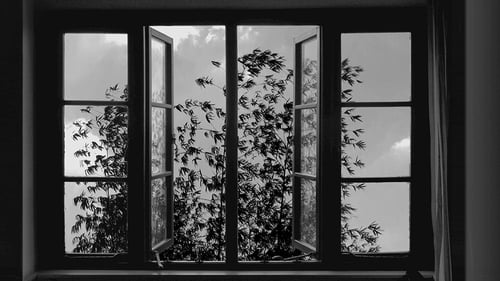
Writer
A collection of 24 short four-and-a-half minutes films inspired by still images, including paintings and photographs. An experimental project made by filmmaker Abbas Kiarostami in the last three years of his life.

Director
A collection of 24 short four-and-a-half minutes films inspired by still images, including paintings and photographs. An experimental project made by filmmaker Abbas Kiarostami in the last three years of his life.

Screenplay
Farhad, a respected math teacher, is engaged to the mother of one of his pupils. But rather than embrace his new father figure, the angry young student spends his days riding around Tehran on a motorcycle with his rebellious friend, refusing to study—or even sit—for his big final exam.

Cinematography
Abbas Kiarostami takes his camera to south of Italy and shows us a beautiful and playful video of alleys and stairs there.
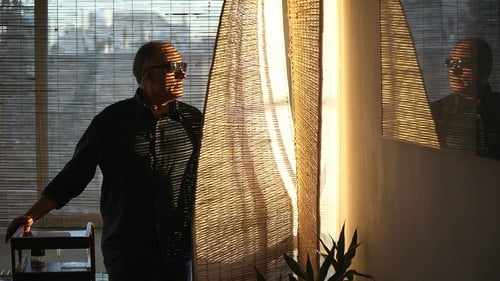
Himself
Kiarostami as we have never really known him before, despite the transformative power of his many movies. Filmmaker and close friend Samadian avoids the talking heads of so many artistic memoirs to offer more candid clips of Kiarostami the man: lover of poetry, convivial with friends, engaging landscapes on and off screen, laughing with other artists. The artist and visionary emerges more clearly but so does a loving, wondrous man whom we will miss now as much as the auteur.

Director
Abbas Kiarostami takes his camera to south of Italy and shows us a beautiful and playful video of alleys and stairs there.

Screenplay
A 9-minute short directed by Abbas Kiarostami, produced as part of a workshop in Cuba.

Writer
A 9-minute short directed by Abbas Kiarostami, produced as part of a workshop in Cuba.

Director
A 9-minute short directed by Abbas Kiarostami, produced as part of a workshop in Cuba.

Himself
Acclaimed Iranian film director Abbas Kiarostami, delivers a film workshop in Bogotá, the filmmakers conclude by proposing a short film in 10 days. Diego, one of the directors of the workshop, as scouting, meets a young shy librarian named Vida , who dreams of being an actress.
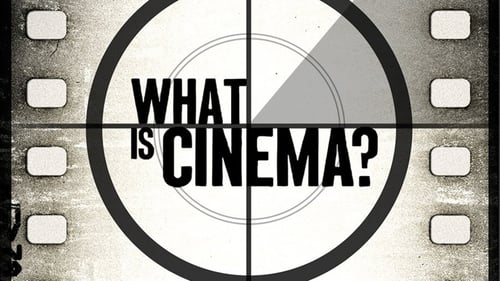
Self
Using the words and ideas of great filmmakers, from archival interviews with Alfred Hitchcock and Robert Bresson to new interviews with Mike Leigh, David Lynch, and Jonas Mekas, Oscar-winning filmmaker Chuck Workman shows what these filmmakers and others do that can't be expressed in words - but only in cinema.

Director
Made for the Venice Film Festival's 70th anniversary, seventy filmmakers made a short film between 60 and 90 seconds long on their interpretation of the future of cinema.

Editor
Uma meditação sobre trabalho e vida; uma dissonância.

Co-Writer
Uma meditação sobre trabalho e vida; uma dissonância.

Self
A look at the formation of the career of Iranian filmmaker Abbas Kiarostami.

Narrator
Documentary with behind-the-scenes footage on the set of Abbas Kiarostomi's 2012 film "Like Someone in Love" with narration by the director.

Screenplay
Akiko é uma jovem que sai do interior do Japão para estudar em Tóquio, e que para sobreviver na cidade grande tem uma vida dupla: hora é uma universitária e namorada do mecânico Noriaki; hora é uma prostituta de uma agência que envia jovens para a casa dos clientes. Numa noite em que Akiko precisa fugir ao mesmo tempo do trabalho e do namorado para ver a avó seu chefe é duro e a manda para a casa de um cliente especial.

Director
Akiko é uma jovem que sai do interior do Japão para estudar em Tóquio, e que para sobreviver na cidade grande tem uma vida dupla: hora é uma universitária e namorada do mecânico Noriaki; hora é uma prostituta de uma agência que envia jovens para a casa dos clientes. Numa noite em que Akiko precisa fugir ao mesmo tempo do trabalho e do namorado para ver a avó seu chefe é duro e a manda para a casa de um cliente especial.
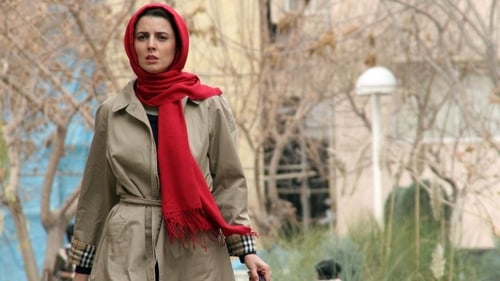
Writer
The only nuptial condition an inveterate chain smoker receives from his perfume-testing fiancee is to quit smoking. This poses a problem for the advertising agency ideas man for whom smoking is all part of the creative process.

Self
Eleven major film makers from Europe, America and Asia talk about Akira Kurosawa and discover surprising influences on their own work.

Director
A little girl with beautiful hair. She loves movies and wants to become an actress. She is being told about the plot of a movie that she is going to play: "A friend is jealous about her hair and cuts it when she is asleep." The girl rejects playing the role. Then she is then told that she can play the jealous girl but she again rejects the role.

Self
The Midnight Sun Film Festival is held every June in the Finnish village of Sodankylä beyond the arctic circle — where the sun never sets. Founded by Aki and Mika Kaurismäki along with Anssi Mänttäri and Peter von Bagh in 1985, the festival has played host to an international who’s who of directors and each day begins with a two-hour discussion. To mark the festival’s silver anniversary, festival director Peter von Bagh edited together highlights from these dialogues to create an epic four-part choral history of cinema drawn from the anecdotes, insights, and wisdom of his all-star cast: Coppola, Fuller, Forman, Chabrol, Corman, Demy, Kieslowski, Kiarostami, Varda, Oliveira, Erice, Rouch, Gilliam, Jancso — and 64 more. Ranging across innumerable topics (war, censorship, movie stars, formative influences, America, neorealism) these voices, many now passed away, engage in a personal dialogue across the years that’s by turns charming, profound, hilarious and moving.
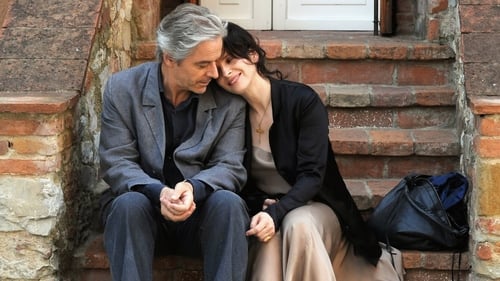
Producer
Um escritor inglês está na Itália lançando seu mais novo trabalho sobre História da Arte, um livro onde defende que as cópias de obras artísticas possuem tanto valor quanto a original. Elle, dona de uma galeria, fica interessada em conversar mais com o autor e o convida para um café. Na conversa os dois vão discutir o argumento do livro, e após a dona da cafeteria confundi-los com um casal, irão, de certa forma, colocar a tese do livro em prática.

Screenplay
Um escritor inglês está na Itália lançando seu mais novo trabalho sobre História da Arte, um livro onde defende que as cópias de obras artísticas possuem tanto valor quanto a original. Elle, dona de uma galeria, fica interessada em conversar mais com o autor e o convida para um café. Na conversa os dois vão discutir o argumento do livro, e após a dona da cafeteria confundi-los com um casal, irão, de certa forma, colocar a tese do livro em prática.

Director
Um escritor inglês está na Itália lançando seu mais novo trabalho sobre História da Arte, um livro onde defende que as cópias de obras artísticas possuem tanto valor quanto a original. Elle, dona de uma galeria, fica interessada em conversar mais com o autor e o convida para um café. Na conversa os dois vão discutir o argumento do livro, e após a dona da cafeteria confundi-los com um casal, irão, de certa forma, colocar a tese do livro em prática.

Self
This interview-based documentary is made on the occasion of the 70th birthday of Aydin Aghdashloo, Mohammad Ehsaei and Abbas Kiarostami, and deals with "aging" from the point of view of these three prominent friends and artists.
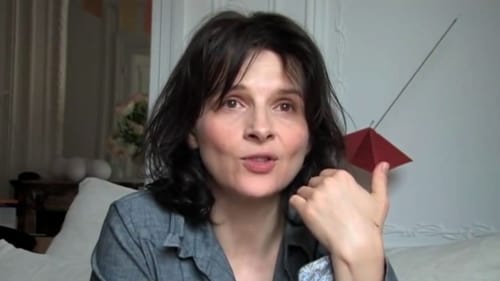
Self
A behind-the-scenes documentary on the making of Abbas Kiarostami’s "Certified Copy" (2010).

Himself
A short documentary about the making of Abbas Kiarostami's 'Shirin'.
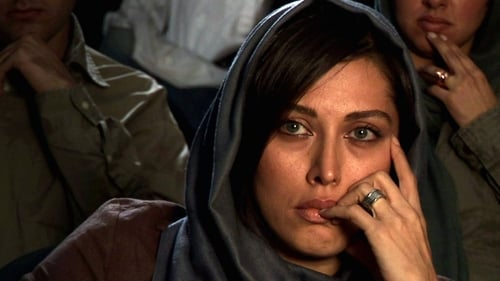
Editor
A hundred and fourteen famous Iranian theater and cinema actresses and a French star: mute spectators at a theatrical representation of Khosrow and Shirin, a Persian poem from the twelfth century, put on stage by Kiarostami. The development of the text -- long a favorite in Persia and the Middle East -- remains invisible to the viewer of the film, the whole story is told by the faces of the women watching the show.

Producer
A hundred and fourteen famous Iranian theater and cinema actresses and a French star: mute spectators at a theatrical representation of Khosrow and Shirin, a Persian poem from the twelfth century, put on stage by Kiarostami. The development of the text -- long a favorite in Persia and the Middle East -- remains invisible to the viewer of the film, the whole story is told by the faces of the women watching the show.

Director
A hundred and fourteen famous Iranian theater and cinema actresses and a French star: mute spectators at a theatrical representation of Khosrow and Shirin, a Persian poem from the twelfth century, put on stage by Kiarostami. The development of the text -- long a favorite in Persia and the Middle East -- remains invisible to the viewer of the film, the whole story is told by the faces of the women watching the show.

Director
We can see rocks on a sea shore, with cavities, in one of them, the highest, there are 3 seagull eggs, and the waves slam that rock.
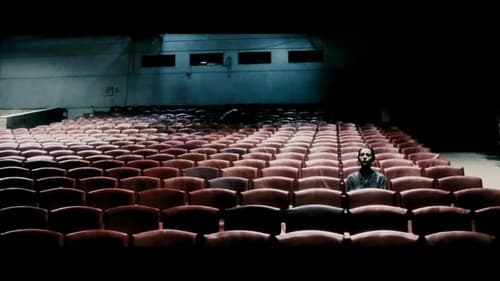
Director
A collective film of 33 shorts directed by different directors about their feeling about cinema.

Cinematography
A veteran film critic explores the legacy of Cannes Film Festival regular Pierre Rissient.

Screenplay
Persian Carpet is an omnibus film produced by Iran's National Carpet Center and Farabi Cinema Foundation where 15 renowned Iranian directors contributed films on the subject of Persian carpet. Carpets are the reflection of the cultural and historical identity of Iran.

Director
Persian Carpet is an omnibus film produced by Iran's National Carpet Center and Farabi Cinema Foundation where 15 renowned Iranian directors contributed films on the subject of Persian carpet. Carpets are the reflection of the cultural and historical identity of Iran.

Director
Various Iranian women, including Golshifteh Farahani, Hamideh Kheirabadi, and Pegah Ahangarani, watch Romeo and Juliet and cry.

himself
Relationships and multiple influences between two great directors of modern cinema.

Director of Photography
Relationships and multiple influences between two great directors of modern cinema.

Editor
Relationships and multiple influences between two great directors of modern cinema.

Writer
Relationships and multiple influences between two great directors of modern cinema.

Director
Relationships and multiple influences between two great directors of modern cinema.

Supervising Producer
A gorgeous and smart film by Daniel Garcia and Rania Attieh, Almost, Brooklyn, gives us an old man doing just what audiences did, crossing the bridge. “I’ve lived in Manhattan all my life, and I’ve never been to Brooklyn. Take me there,” says the old man, armed with an 8mm camera, to the South Asian cabbie. The film, a pet project of the living legend and Iranian new-waver Abbas Kiarostami, ushers the audience through a surreal and very telling sojourn in the magical borough”.

Editor
Static shots of his photos alternate with footage of director Abbas Kiarostami's car winding through mountain roads, as the Iranian filmmaker muses in voice-over on the significance of the journey and on the path of his work and Persian literature as a whole.

Director of Photography
Static shots of his photos alternate with footage of director Abbas Kiarostami's car winding through mountain roads, as the Iranian filmmaker muses in voice-over on the significance of the journey and on the path of his work and Persian literature as a whole.

Writer
Static shots of his photos alternate with footage of director Abbas Kiarostami's car winding through mountain roads, as the Iranian filmmaker muses in voice-over on the significance of the journey and on the path of his work and Persian literature as a whole.

Self
Static shots of his photos alternate with footage of director Abbas Kiarostami's car winding through mountain roads, as the Iranian filmmaker muses in voice-over on the significance of the journey and on the path of his work and Persian literature as a whole.

Director
Static shots of his photos alternate with footage of director Abbas Kiarostami's car winding through mountain roads, as the Iranian filmmaker muses in voice-over on the significance of the journey and on the path of his work and Persian literature as a whole.

Screenplay
In this guided tour of a unique Persian carpet, a close-up of the delicate "spine" of a tree branches out into the discovery of a fantastical world.

Director
In this guided tour of a unique Persian carpet, a close-up of the delicate "spine" of a tree branches out into the discovery of a fantastical world.

Screenplay
A political allegory on four middle-class guys who pile into their car for a ski weekend. A brief stop at a picturesque vista leads to their chance discovery of a prominent rock formation it seems would be oh so easy to tip over, but...

Self
10 Days with Kiarostami

Himself
Abbas Kiarostami is the most acclaimed Iranian film director whose films have won prizes all around the world. In this film he gives a rare and frank interview about his work, and journeys out of Tehran to meet Babk Ahmadpoor the now grown up star of his famous trilogy which started with Where is the Friends House. On the journey Kiarostami picks up the camera himself, producing images of pure poetry.
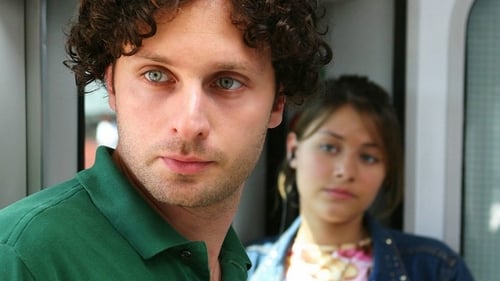
Screenplay
A train travels across Italy toward Rome. On board is a professor who daydreams a conversation with a love that never was, a family of Albanian refugees who switch trains and steal a ticket, three brash Scottish soccer fans en route to a match, and a complaining widow traveling to a memorial service for her late husband who's accompanied by a community-service volunteer who's assisting her. Interactions among these Europeans turn on class and nationalism, courtesy and rudeness, and opportunities for kindness.

Director
A train travels across Italy toward Rome. On board is a professor who daydreams a conversation with a love that never was, a family of Albanian refugees who switch trains and steal a ticket, three brash Scottish soccer fans en route to a match, and a complaining widow traveling to a memorial service for her late husband who's accompanied by a community-service volunteer who's assisting her. Interactions among these Europeans turn on class and nationalism, courtesy and rudeness, and opportunities for kindness.

Himself
A documentary dealing with the life of Ahmadreza Ahmadi, an Iranian Poet.

himself
Abbas Kiarostami on his film Five Dedicated to Ozu.

Director
Abbas Kiarostami on his film Five Dedicated to Ozu.

Title Designer
The story of four soldiers who on a Friday go to the city with their commander. But this Friday is different and brings many troubles for them which changes them forever.

Self
"10 on Ten" is a 2004 Iranian documentary film directed by Abbas Kiarostami. It was screened in the Un Certain Regard section at the 2004 Cannes Film Festival. Looking to his own art for inspiration, Abbas Kiarostami reflects on his techniques of filming and how he taped certain sequences in "Ten" in 2001.

Sound Director
"10 on Ten" is a 2004 Iranian documentary film directed by Abbas Kiarostami. It was screened in the Un Certain Regard section at the 2004 Cannes Film Festival. Looking to his own art for inspiration, Abbas Kiarostami reflects on his techniques of filming and how he taped certain sequences in "Ten" in 2001.

Editor
"10 on Ten" is a 2004 Iranian documentary film directed by Abbas Kiarostami. It was screened in the Un Certain Regard section at the 2004 Cannes Film Festival. Looking to his own art for inspiration, Abbas Kiarostami reflects on his techniques of filming and how he taped certain sequences in "Ten" in 2001.

Cinematography
"10 on Ten" is a 2004 Iranian documentary film directed by Abbas Kiarostami. It was screened in the Un Certain Regard section at the 2004 Cannes Film Festival. Looking to his own art for inspiration, Abbas Kiarostami reflects on his techniques of filming and how he taped certain sequences in "Ten" in 2001.

Producer
"10 on Ten" is a 2004 Iranian documentary film directed by Abbas Kiarostami. It was screened in the Un Certain Regard section at the 2004 Cannes Film Festival. Looking to his own art for inspiration, Abbas Kiarostami reflects on his techniques of filming and how he taped certain sequences in "Ten" in 2001.

Writer
"10 on Ten" is a 2004 Iranian documentary film directed by Abbas Kiarostami. It was screened in the Un Certain Regard section at the 2004 Cannes Film Festival. Looking to his own art for inspiration, Abbas Kiarostami reflects on his techniques of filming and how he taped certain sequences in "Ten" in 2001.

Director
"10 on Ten" is a 2004 Iranian documentary film directed by Abbas Kiarostami. It was screened in the Un Certain Regard section at the 2004 Cannes Film Festival. Looking to his own art for inspiration, Abbas Kiarostami reflects on his techniques of filming and how he taped certain sequences in "Ten" in 2001.

Twenty years after The Traveler was made, Kiarostami's son filmed his father as he reunited with the film's child star, now in his 30s.

Sound
Finding himself in a house in the north of Iran by the Caspian Sea, the director picked up his handheld DV camera and began filming the seemingly anodyne events happening on the 500 metres of beach in front of his house—a piece of wood toyed with by the waves, people walking by the sea, indistinct shapes on a wintry beach or noisy ducks.

Editor
Finding himself in a house in the north of Iran by the Caspian Sea, the director picked up his handheld DV camera and began filming the seemingly anodyne events happening on the 500 metres of beach in front of his house—a piece of wood toyed with by the waves, people walking by the sea, indistinct shapes on a wintry beach or noisy ducks.

Screenplay
Finding himself in a house in the north of Iran by the Caspian Sea, the director picked up his handheld DV camera and began filming the seemingly anodyne events happening on the 500 metres of beach in front of his house—a piece of wood toyed with by the waves, people walking by the sea, indistinct shapes on a wintry beach or noisy ducks.

Director of Photography
Finding himself in a house in the north of Iran by the Caspian Sea, the director picked up his handheld DV camera and began filming the seemingly anodyne events happening on the 500 metres of beach in front of his house—a piece of wood toyed with by the waves, people walking by the sea, indistinct shapes on a wintry beach or noisy ducks.

Director
Finding himself in a house in the north of Iran by the Caspian Sea, the director picked up his handheld DV camera and began filming the seemingly anodyne events happening on the 500 metres of beach in front of his house—a piece of wood toyed with by the waves, people walking by the sea, indistinct shapes on a wintry beach or noisy ducks.

Writer
Hussein é um entregador de pizza pobre que diariamente entra em contato com os contrastes entre o mundo dos pobres e dos ricos, ao fazer seu trabalho em bairros nobres, onde vê diversas mansões e muita riqueza. Após ser impedido de entrar em uma joalheria por sua aparência, ele e o amigo Ali assaltam o lugar, como forma de vingança.

Screenplay
A boy breaks a window at his school and sets out to fix it on his own during a storm.

Self
This documentary is featured on the two-disc Chaplin Collection DVD for "The Kid" (1921), released in 2004.
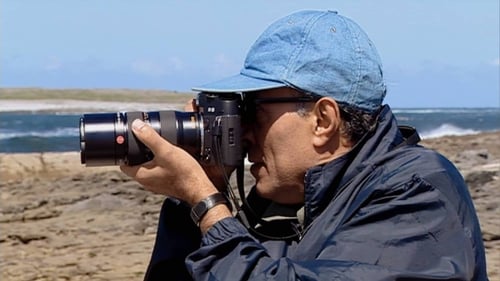
Self
Through an interview with Kiarostami in the Aran Islands and interviews with film critics and scholars at Cannes, the director examines Kiarostami's themes and methods. The director also profiles Kiarostami as a poet and a photographer.

Self
U.S.-based film professor Jamsheed Akrami talks to Iranian master Abbas Kiarostami in an inpromptu video interview, which offers a frank and funny view of Kiarostami rarely seen before.
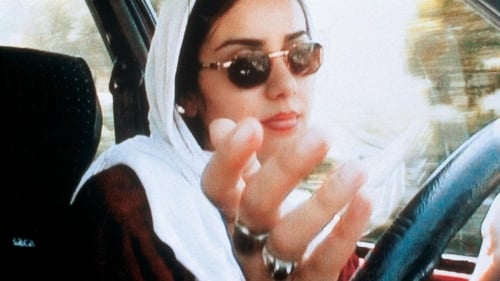
Director of Photography
"Dez" mostra dez momentos da vida de uma mulher no Irã contemporâneo. Ela está organizando uma festa para comemorar o aniversário de seu segundo marido, enquanto precisa lidar com o filho - que a culpa pelo fim do primeiro casamento - e outras atividades do dia-a-dia.

Screenplay
"Dez" mostra dez momentos da vida de uma mulher no Irã contemporâneo. Ela está organizando uma festa para comemorar o aniversário de seu segundo marido, enquanto precisa lidar com o filho - que a culpa pelo fim do primeiro casamento - e outras atividades do dia-a-dia.

Director
"Dez" mostra dez momentos da vida de uma mulher no Irã contemporâneo. Ela está organizando uma festa para comemorar o aniversário de seu segundo marido, enquanto precisa lidar com o filho - que a culpa pelo fim do primeiro casamento - e outras atividades do dia-a-dia.

Editor
"Dez" mostra dez momentos da vida de uma mulher no Irã contemporâneo. Ela está organizando uma festa para comemorar o aniversário de seu segundo marido, enquanto precisa lidar com o filho - que a culpa pelo fim do primeiro casamento - e outras atividades do dia-a-dia.

(himself)
Kiarostami about the making of "The Wind Will Carry Us"

Writer
On a pilgrimage to Mashad from Tehran, a couple's transportation breaks down, far from any major town. The husband, a photographer, seeks help at a nearby village and encounters a teacher who offers to help. Whilst the husband and teacher go off to find a spare part, the wife, who used to be a teacher, takes over the teaching lessons in the village. It is clear that the children live there, in this strange deserted place, without any men, save the teacher and an old signal guard. As the day draws on, the children help to bring a new hope and life into the wife's heart.
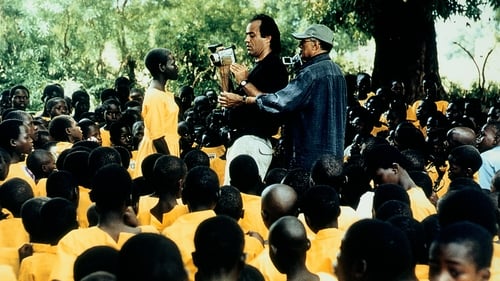
Self
Abbas Kiarostami shoots a documentary about the AIDS crisis in Uganda.

Producer
Abbas Kiarostami shoots a documentary about the AIDS crisis in Uganda.

Editor
Abbas Kiarostami shoots a documentary about the AIDS crisis in Uganda.

Writer
Abbas Kiarostami shoots a documentary about the AIDS crisis in Uganda.

Director
Abbas Kiarostami shoots a documentary about the AIDS crisis in Uganda.

as Self
A documentary that focuses on Abbas Kiarostami's cinematic philosophy talking to himself and other figures, and also seeks the opinion about his works both inside and outside his homeland.

himself
Mohara Yuji's documentary A Week with Kiarostami, filmed on the set of The Wind Will Carry Us. A photographic diary, the film plunges us into the beating heart of a shoot whose story plays out to the rhythm of the relationships between actors and local people. A team led by Yuji Mohara traveled to Iran to a portrait of the Iranian filmmaker Abbas Kiarostam. Mohara met Kiarostami in a village on the set of Kiarostami's The Wind Will Carry Us. A Week with Kiarostami is a cinematic diary of the set, and opened the door to the world of this poetic and mysterious director. Seven days which allow us to this corner of Iran to discover, and the way in which Kiarostami these dreams; seven chronicles we do pay up in the beating heart of a rotation whose story the rhythm of the relationships between the actors and villagers follows.
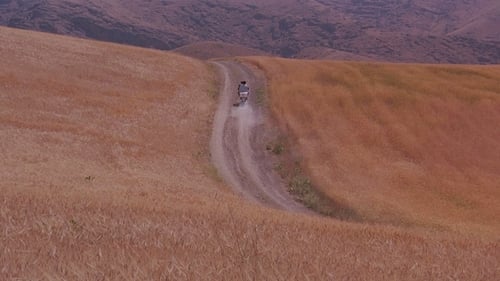
Editor
Um iraniano e seus dois assistentes chegam a uma humilde vila na região do Curdistão. Nomeado pelos locais como "Engenheiro", o homem é guiado por um garoto que o leva à uma anciã que parece estar prestes a morrer. O recém-chegado então passa a acompanhar os rituais e costumes daquela comunidade, enquanto cumpre seu propósito. Dirigido por Abbas Kiarostami e vencedor de três prêmios no Festival de Veneza.

Producer
Um iraniano e seus dois assistentes chegam a uma humilde vila na região do Curdistão. Nomeado pelos locais como "Engenheiro", o homem é guiado por um garoto que o leva à uma anciã que parece estar prestes a morrer. O recém-chegado então passa a acompanhar os rituais e costumes daquela comunidade, enquanto cumpre seu propósito. Dirigido por Abbas Kiarostami e vencedor de três prêmios no Festival de Veneza.

Writer
Um iraniano e seus dois assistentes chegam a uma humilde vila na região do Curdistão. Nomeado pelos locais como "Engenheiro", o homem é guiado por um garoto que o leva à uma anciã que parece estar prestes a morrer. O recém-chegado então passa a acompanhar os rituais e costumes daquela comunidade, enquanto cumpre seu propósito. Dirigido por Abbas Kiarostami e vencedor de três prêmios no Festival de Veneza.

Director
Um iraniano e seus dois assistentes chegam a uma humilde vila na região do Curdistão. Nomeado pelos locais como "Engenheiro", o homem é guiado por um garoto que o leva à uma anciã que parece estar prestes a morrer. O recém-chegado então passa a acompanhar os rituais e costumes daquela comunidade, enquanto cumpre seu propósito. Dirigido por Abbas Kiarostami e vencedor de três prêmios no Festival de Veneza.

self
A documentary about the most important modern Iranian poet and intellectual icon. Iranian poet Ahmad Shamlou talks about his poetry, the world of poetry, and his life. Filmed over a two year period from 1996 to 1998.

Director
One shot, taken using a time-lapse technique, of a sunrise in an Iranian mountain landscape. A thin band of light shines across a starry sky, the sun comes up, the dawn light glows.
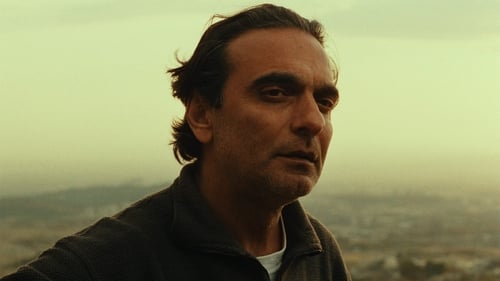
Editor
Badii é um homem de boa condição financeira que decide suicidar-se. Planeja tomar vários remédios e deitar num buraco que cavou na montanha. Preocupado com o que pode acontecer a seu corpo, e pensando na possibilidade de o suicídio falhar, Badii começa a procurar entre trabalhadores pobres alguém confiável para ajudá-lo.

Producer
Badii é um homem de boa condição financeira que decide suicidar-se. Planeja tomar vários remédios e deitar num buraco que cavou na montanha. Preocupado com o que pode acontecer a seu corpo, e pensando na possibilidade de o suicídio falhar, Badii começa a procurar entre trabalhadores pobres alguém confiável para ajudá-lo.

Writer
Badii é um homem de boa condição financeira que decide suicidar-se. Planeja tomar vários remédios e deitar num buraco que cavou na montanha. Preocupado com o que pode acontecer a seu corpo, e pensando na possibilidade de o suicídio falhar, Badii começa a procurar entre trabalhadores pobres alguém confiável para ajudá-lo.

Director
Badii é um homem de boa condição financeira que decide suicidar-se. Planeja tomar vários remédios e deitar num buraco que cavou na montanha. Preocupado com o que pode acontecer a seu corpo, e pensando na possibilidade de o suicídio falhar, Badii começa a procurar entre trabalhadores pobres alguém confiável para ajudá-lo.

Self

Director
A thirty-nine minute sketch film for TASTE OF CHERRY that Abbas Kiarostani made with his son Bahman Kiarostami.

Writer
An exploration of the psychological effects of war on a middle-class Iranian family who flee Teheran following a night air raid.

Director
40 international directors were asked to make a short film using the original Cinematographe invented by the Lumière Brothers, working under conditions similar to those of 1895. There were three rules: (1) The film could be no longer than 52 seconds, (2) no synchronized sound was permitted, and (3) no more than three takes.

Writer
Anthology of short films about the French city of Nice, by various directors. A homage to Jean Vigo and his "À propos de Nice" from 1930.
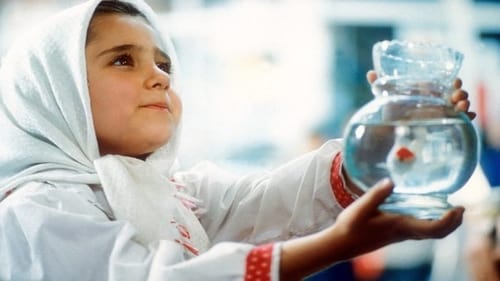
Writer
Several people try to take advantage of a little girl's innocence to hustle money her mom gave to her to buy a goldfish with.
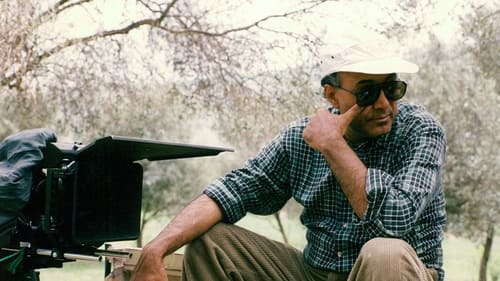
Self
A documentary by Hamideh Sharif Rad about Abbas Kiarostami's "Through the Olive Trees" (1994).

Self
A documentary about Iranian film director Abbas Kiarostami first aired on the French television series Cinema de Notre Temps.
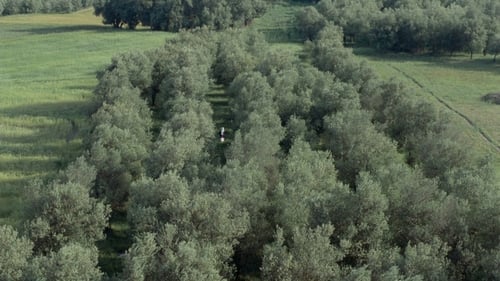
Self
Uma equipe de cinema chega a uma pequena cidade no norte do Irã, devastada por um tremor de terra, para realizar um filme. Hossein (Hossein Rezai) é contratado para ser o protagonista. Por acaso, a atriz que contracena com ele é Tahere (Tahere Ladanian), uma jovem por quem ele está apaixonado, mas que a família tinha recusado para o casamento. Enquanto ele diz todas as suas falas, Tahere permanece calada. O diretor descobre o amor platônico que Hossein sente por Tahere. Após algumas pressões, Tahereh aceita atuar normalmente e começa a cumprir seu trabalho. Mas não é fácil, ao menos para Farhad - na história que está sendo filmada, eles são recém-casados. Nos intervalos entre os takes, ele tenta de todas as maneiras obter uma resposta de sua amada. Entretanto, ela não parece muito interessada em responder.

Production Design
Uma equipe de cinema chega a uma pequena cidade no norte do Irã, devastada por um tremor de terra, para realizar um filme. Hossein (Hossein Rezai) é contratado para ser o protagonista. Por acaso, a atriz que contracena com ele é Tahere (Tahere Ladanian), uma jovem por quem ele está apaixonado, mas que a família tinha recusado para o casamento. Enquanto ele diz todas as suas falas, Tahere permanece calada. O diretor descobre o amor platônico que Hossein sente por Tahere. Após algumas pressões, Tahereh aceita atuar normalmente e começa a cumprir seu trabalho. Mas não é fácil, ao menos para Farhad - na história que está sendo filmada, eles são recém-casados. Nos intervalos entre os takes, ele tenta de todas as maneiras obter uma resposta de sua amada. Entretanto, ela não parece muito interessada em responder.

Editor
Uma equipe de cinema chega a uma pequena cidade no norte do Irã, devastada por um tremor de terra, para realizar um filme. Hossein (Hossein Rezai) é contratado para ser o protagonista. Por acaso, a atriz que contracena com ele é Tahere (Tahere Ladanian), uma jovem por quem ele está apaixonado, mas que a família tinha recusado para o casamento. Enquanto ele diz todas as suas falas, Tahere permanece calada. O diretor descobre o amor platônico que Hossein sente por Tahere. Após algumas pressões, Tahereh aceita atuar normalmente e começa a cumprir seu trabalho. Mas não é fácil, ao menos para Farhad - na história que está sendo filmada, eles são recém-casados. Nos intervalos entre os takes, ele tenta de todas as maneiras obter uma resposta de sua amada. Entretanto, ela não parece muito interessada em responder.

Producer
Uma equipe de cinema chega a uma pequena cidade no norte do Irã, devastada por um tremor de terra, para realizar um filme. Hossein (Hossein Rezai) é contratado para ser o protagonista. Por acaso, a atriz que contracena com ele é Tahere (Tahere Ladanian), uma jovem por quem ele está apaixonado, mas que a família tinha recusado para o casamento. Enquanto ele diz todas as suas falas, Tahere permanece calada. O diretor descobre o amor platônico que Hossein sente por Tahere. Após algumas pressões, Tahereh aceita atuar normalmente e começa a cumprir seu trabalho. Mas não é fácil, ao menos para Farhad - na história que está sendo filmada, eles são recém-casados. Nos intervalos entre os takes, ele tenta de todas as maneiras obter uma resposta de sua amada. Entretanto, ela não parece muito interessada em responder.

Writer
Uma equipe de cinema chega a uma pequena cidade no norte do Irã, devastada por um tremor de terra, para realizar um filme. Hossein (Hossein Rezai) é contratado para ser o protagonista. Por acaso, a atriz que contracena com ele é Tahere (Tahere Ladanian), uma jovem por quem ele está apaixonado, mas que a família tinha recusado para o casamento. Enquanto ele diz todas as suas falas, Tahere permanece calada. O diretor descobre o amor platônico que Hossein sente por Tahere. Após algumas pressões, Tahereh aceita atuar normalmente e começa a cumprir seu trabalho. Mas não é fácil, ao menos para Farhad - na história que está sendo filmada, eles são recém-casados. Nos intervalos entre os takes, ele tenta de todas as maneiras obter uma resposta de sua amada. Entretanto, ela não parece muito interessada em responder.

Director
Uma equipe de cinema chega a uma pequena cidade no norte do Irã, devastada por um tremor de terra, para realizar um filme. Hossein (Hossein Rezai) é contratado para ser o protagonista. Por acaso, a atriz que contracena com ele é Tahere (Tahere Ladanian), uma jovem por quem ele está apaixonado, mas que a família tinha recusado para o casamento. Enquanto ele diz todas as suas falas, Tahere permanece calada. O diretor descobre o amor platônico que Hossein sente por Tahere. Após algumas pressões, Tahereh aceita atuar normalmente e começa a cumprir seu trabalho. Mas não é fácil, ao menos para Farhad - na história que está sendo filmada, eles são recém-casados. Nos intervalos entre os takes, ele tenta de todas as maneiras obter uma resposta de sua amada. Entretanto, ela não parece muito interessada em responder.
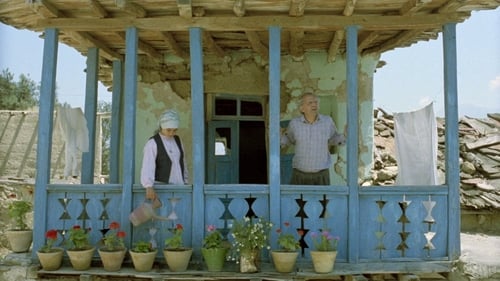
Editor
Um diretor de vinema e seu filho retornam a uma região atingida pelo terremoto de Guilan, na esperança de encontrar as crianças que apareceram em seu filme alguns anos antes. Após o terremoto de Guilan, o diretor de cinema e seu filho Puya viajam para a área devastada para procurar os atores do filme que o diretor fez lá alguns anos atrás, Khane-ye Doust Kodjast? (1987). Em sua busca, eles descobrem como as pessoas que perderam tudo no terremoto ainda têm esperança e tentam viver a vida ao máximo. (e 12 - Estimado 12 Anos)

Writer
Um diretor de vinema e seu filho retornam a uma região atingida pelo terremoto de Guilan, na esperança de encontrar as crianças que apareceram em seu filme alguns anos antes. Após o terremoto de Guilan, o diretor de cinema e seu filho Puya viajam para a área devastada para procurar os atores do filme que o diretor fez lá alguns anos atrás, Khane-ye Doust Kodjast? (1987). Em sua busca, eles descobrem como as pessoas que perderam tudo no terremoto ainda têm esperança e tentam viver a vida ao máximo. (e 12 - Estimado 12 Anos)

Director
Um diretor de vinema e seu filho retornam a uma região atingida pelo terremoto de Guilan, na esperança de encontrar as crianças que apareceram em seu filme alguns anos antes. Após o terremoto de Guilan, o diretor de cinema e seu filho Puya viajam para a área devastada para procurar os atores do filme que o diretor fez lá alguns anos atrás, Khane-ye Doust Kodjast? (1987). Em sua busca, eles descobrem como as pessoas que perderam tudo no terremoto ainda têm esperança e tentam viver a vida ao máximo. (e 12 - Estimado 12 Anos)
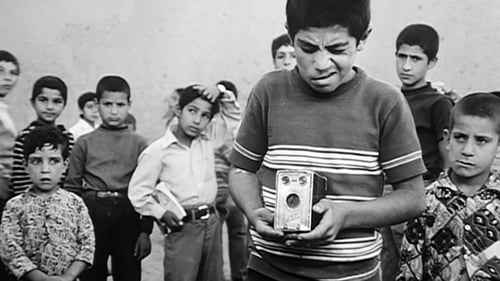
Writer
Hassan Darabi, a troublesome, amoral 10-year-old boy in a small Iranian town wishes to see the Iran national football team play an important match in Tehran. In order to achieve that, he scams his friends and neighbors.

Director
Hassan Darabi, a troublesome, amoral 10-year-old boy in a small Iranian town wishes to see the Iran national football team play an important match in Tehran. In order to achieve that, he scams his friends and neighbors.
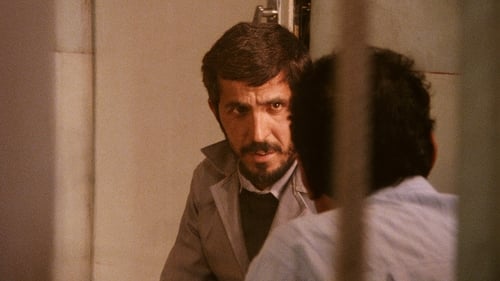
Self
Um homem engana uma família afirmando ser Mohsen Makhmalbaf, um famoso diretor iraniano, e que faria um novo filme em sua casa, estrelado por eles mesmos. Ao desconfiar da fraude, a família chama a polícia e o homem é preso por falsidade ideológica. Sensibilizado com o caso do rapaz, o diretor Abbas Kiarostami o procura e pergunta o que pode fazer por ele, que responde "estou sofrendo muito, faça um filme sobre meu sofrimento". Kiarostami então filma o julgamento do rapaz, e posteriormente reconta a história fazendo de atores os próprios envolvidos no caso.

Editor
Um homem engana uma família afirmando ser Mohsen Makhmalbaf, um famoso diretor iraniano, e que faria um novo filme em sua casa, estrelado por eles mesmos. Ao desconfiar da fraude, a família chama a polícia e o homem é preso por falsidade ideológica. Sensibilizado com o caso do rapaz, o diretor Abbas Kiarostami o procura e pergunta o que pode fazer por ele, que responde "estou sofrendo muito, faça um filme sobre meu sofrimento". Kiarostami então filma o julgamento do rapaz, e posteriormente reconta a história fazendo de atores os próprios envolvidos no caso.

Writer
Um homem engana uma família afirmando ser Mohsen Makhmalbaf, um famoso diretor iraniano, e que faria um novo filme em sua casa, estrelado por eles mesmos. Ao desconfiar da fraude, a família chama a polícia e o homem é preso por falsidade ideológica. Sensibilizado com o caso do rapaz, o diretor Abbas Kiarostami o procura e pergunta o que pode fazer por ele, que responde "estou sofrendo muito, faça um filme sobre meu sofrimento". Kiarostami então filma o julgamento do rapaz, e posteriormente reconta a história fazendo de atores os próprios envolvidos no caso.

Director
Um homem engana uma família afirmando ser Mohsen Makhmalbaf, um famoso diretor iraniano, e que faria um novo filme em sua casa, estrelado por eles mesmos. Ao desconfiar da fraude, a família chama a polícia e o homem é preso por falsidade ideológica. Sensibilizado com o caso do rapaz, o diretor Abbas Kiarostami o procura e pergunta o que pode fazer por ele, que responde "estou sofrendo muito, faça um filme sobre meu sofrimento". Kiarostami então filma o julgamento do rapaz, e posteriormente reconta a história fazendo de atores os próprios envolvidos no caso.
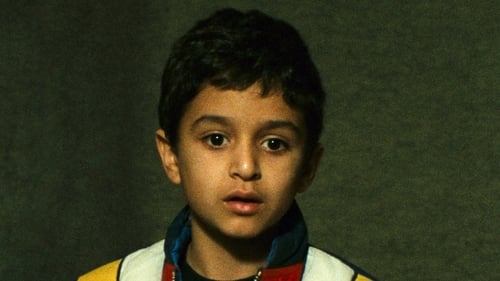
Editor
Young male students at a local Iranian school are asked about their feelings on homework.

Self
Young male students at a local Iranian school are asked about their feelings on homework.

Screenplay
Young male students at a local Iranian school are asked about their feelings on homework.

Director
Young male students at a local Iranian school are asked about their feelings on homework.
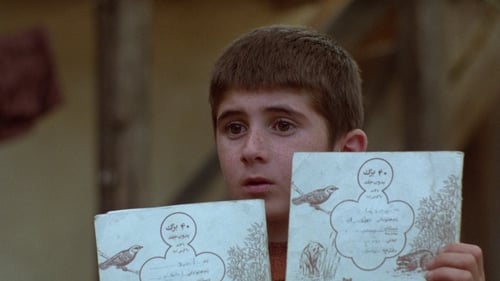
Editor
Um menino de oito anos pegou por engano o caderno do amigo. Agora, precisa devolvê-lo para evitar que o amigo seja expulso da escola se não levar o dever de casa.

Writer
Um menino de oito anos pegou por engano o caderno do amigo. Agora, precisa devolvê-lo para evitar que o amigo seja expulso da escola se não levar o dever de casa.

Director
Um menino de oito anos pegou por engano o caderno do amigo. Agora, precisa devolvê-lo para evitar que o amigo seja expulso da escola se não levar o dever de casa.

Screenplay
Um garoto de quatro anos é deixado pela mãe, trancado em casa, com o irmão menor e a responsabilidade de não deixar queimar a comida que está no forno. O cheiro de queimado atrai a atenção dos vizinhos, que fazem de tudo para abrir a porta e salvar as crianças.

Editor
Um garoto de quatro anos é deixado pela mãe, trancado em casa, com o irmão menor e a responsabilidade de não deixar queimar a comida que está no forno. O cheiro de queimado atrai a atenção dos vizinhos, que fazem de tudo para abrir a porta e salvar as crianças.

Editor
A documentary film about a boys school in Iran. The film shows numerous, funny and moving interviews of many different young pupils of this school summoned by their superintendent for questions of discipline. The man is not severe, but clever and fair. He teaches loyalty, fellowship and righteousness to these boys. Besides these interviews, we see scenes of this school’s quotidian life.

Writer
A documentary film about a boys school in Iran. The film shows numerous, funny and moving interviews of many different young pupils of this school summoned by their superintendent for questions of discipline. The man is not severe, but clever and fair. He teaches loyalty, fellowship and righteousness to these boys. Besides these interviews, we see scenes of this school’s quotidian life.

Director
A documentary film about a boys school in Iran. The film shows numerous, funny and moving interviews of many different young pupils of this school summoned by their superintendent for questions of discipline. The man is not severe, but clever and fair. He teaches loyalty, fellowship and righteousness to these boys. Besides these interviews, we see scenes of this school’s quotidian life.

Editor
"Equal parts narrative and instructional cautionary tale, Toothache emphasizes taking care of one's teeth" (MoMA).

Editor
On July 1983, lawmakers in Teheran decided to close off a section of the capital to regular traffic. Only drivers with special permits could cross the road blocks set up at various intersections leading to the restricted zone.

Screenplay
"Equal parts narrative and instructional cautionary tale, Toothache emphasizes taking care of one's teeth" (MoMA).

Director
"Equal parts narrative and instructional cautionary tale, Toothache emphasizes taking care of one's teeth" (MoMA).

Writer
On July 1983, lawmakers in Teheran decided to close off a section of the capital to regular traffic. Only drivers with special permits could cross the road blocks set up at various intersections leading to the restricted zone.

Director
On July 1983, lawmakers in Teheran decided to close off a section of the capital to regular traffic. Only drivers with special permits could cross the road blocks set up at various intersections leading to the restricted zone.

Writer
An old man with a hearing aid tires of listening to the noises of the town. But when he takes his aid out he can't hear his grandchildren coming to see him.

Director
An old man with a hearing aid tires of listening to the noises of the town. But when he takes his aid out he can't hear his grandchildren coming to see him.

Writer
A sense of order is the necessary basis of any good social organisation. To illustrate this axiom, Kiarostami presents a series of paired scenes in this educational short film in which the same action is first shown in an organised way and then in an anarchic one. The film crew, however, finds it difficult to organise disorder.

Director
A sense of order is the necessary basis of any good social organisation. To illustrate this axiom, Kiarostami presents a series of paired scenes in this educational short film in which the same action is first shown in an organised way and then in an anarchic one. The film crew, however, finds it difficult to organise disorder.

Editor
Kiarostami presents two cases for talking heads to evaluate in terms of morality, rights and responsibilities. Case One: Your son is in class, sitting in the back row. His teacher is writing on the board. A restless student in the back row makes a lot of noise. Not knowing who the culprit is, the teacher makes all the children sitting in the last two rows stay outside of the class until the weekend, unless they tell him who made the noise. After a few days spent outside of the classroom, your son relents and tattles on the boy who made the noise, so he can go back in and continue learning. Was he in the right? Case Two: The other students from the back row wait out the rest of the week outside of the class, before returning. Were they in the right?

Writer
Kiarostami presents two cases for talking heads to evaluate in terms of morality, rights and responsibilities. Case One: Your son is in class, sitting in the back row. His teacher is writing on the board. A restless student in the back row makes a lot of noise. Not knowing who the culprit is, the teacher makes all the children sitting in the last two rows stay outside of the class until the weekend, unless they tell him who made the noise. After a few days spent outside of the classroom, your son relents and tattles on the boy who made the noise, so he can go back in and continue learning. Was he in the right? Case Two: The other students from the back row wait out the rest of the week outside of the class, before returning. Were they in the right?

Director
Kiarostami presents two cases for talking heads to evaluate in terms of morality, rights and responsibilities. Case One: Your son is in class, sitting in the back row. His teacher is writing on the board. A restless student in the back row makes a lot of noise. Not knowing who the culprit is, the teacher makes all the children sitting in the last two rows stay outside of the class until the weekend, unless they tell him who made the noise. After a few days spent outside of the classroom, your son relents and tattles on the boy who made the noise, so he can go back in and continue learning. Was he in the right? Case Two: The other students from the back row wait out the rest of the week outside of the class, before returning. Were they in the right?

Writer
A man, unable to hitch a ride back to his broken-down car with a new tire, rolls it back to his car while running.

Director
A man, unable to hitch a ride back to his broken-down car with a new tire, rolls it back to his car while running.

Editor
A documentary featuring interviews with teachers and officials on the profession of teaching.

Producer
A documentary featuring interviews with teachers and officials on the profession of teaching.

Writer
A documentary featuring interviews with teachers and officials on the profession of teaching.

Director
A documentary featuring interviews with teachers and officials on the profession of teaching.

Screenplay
"A humorous slice of educational instruction on refurbishing and painting" (MoMA).

Director
"A humorous slice of educational instruction on refurbishing and painting" (MoMA).
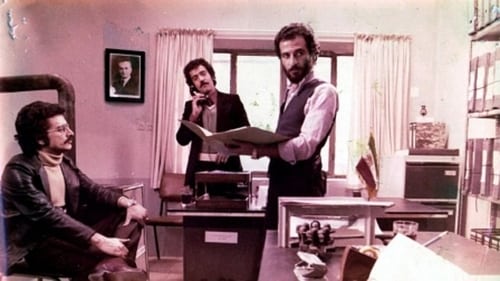
Screenplay
A tax collector is accused of taking bribes, and also has to deal with problems at home, including a suicide attempt by his wife.

Director
A tax collector is accused of taking bribes, and also has to deal with problems at home, including a suicide attempt by his wife.

Editor
By showing a series of different-coloured objects, the film aims to familiarize very young children with the various colours, and ends with a shot of a blackboard, a symbol of learning.

Writer
By showing a series of different-coloured objects, the film aims to familiarize very young children with the various colours, and ends with a shot of a blackboard, a symbol of learning.

Director
By showing a series of different-coloured objects, the film aims to familiarize very young children with the various colours, and ends with a shot of a blackboard, a symbol of learning.
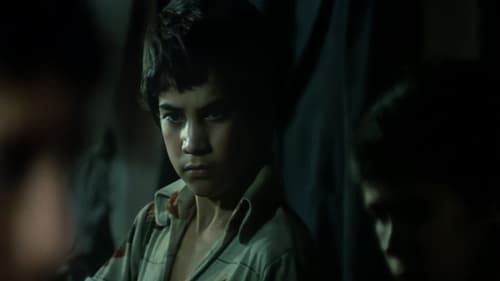
Producer
A woman orders a suit from a tailor for her young son to wear to her sister's wedding. The tailor's apprentice, together with two other teenage boys who work in the same building, devise a plan to try on the suit at night to see what it feels like.

Editor
A woman orders a suit from a tailor for her young son to wear to her sister's wedding. The tailor's apprentice, together with two other teenage boys who work in the same building, devise a plan to try on the suit at night to see what it feels like.

Screenplay
A woman orders a suit from a tailor for her young son to wear to her sister's wedding. The tailor's apprentice, together with two other teenage boys who work in the same building, devise a plan to try on the suit at night to see what it feels like.

Director
A woman orders a suit from a tailor for her young son to wear to her sister's wedding. The tailor's apprentice, together with two other teenage boys who work in the same building, devise a plan to try on the suit at night to see what it feels like.

Editor
Two children watching animals move in an animated film try to imitate their gestures — until they see real birds fly and a real airplane take off.
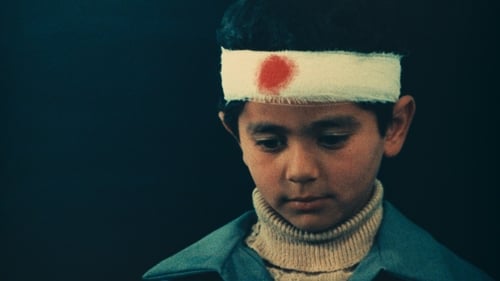
Editor
During breaktime, Dara and Nader have a fierce argument about a torn exercise book that the former has given back to the latter. There are two possible outcomes, which the film shows one after the other. One is that Dara wants to get his own back, and the two boys start a violent fight; the other is that they work together to mend the exercise book with a little glue.

Writer
During breaktime, Dara and Nader have a fierce argument about a torn exercise book that the former has given back to the latter. There are two possible outcomes, which the film shows one after the other. One is that Dara wants to get his own back, and the two boys start a violent fight; the other is that they work together to mend the exercise book with a little glue.

Screenplay
Two children watching animals move in an animated film try to imitate their gestures — until they see real birds fly and a real airplane take off.

Director
Two children watching animals move in an animated film try to imitate their gestures — until they see real birds fly and a real airplane take off.

Director
During breaktime, Dara and Nader have a fierce argument about a torn exercise book that the former has given back to the latter. There are two possible outcomes, which the film shows one after the other. One is that Dara wants to get his own back, and the two boys start a violent fight; the other is that they work together to mend the exercise book with a little glue.

Producer
Mahmad é um jovem que trabalha em um estúdio fotográfico. Certo dia, fazendo um trabalho nas ruas de um bairro rico da cidade, ele se depara com uma linda garota por quem logo se apaixona. Empenhado em conquistá-la, ele decide mudar o seu visual.

Editor
Mahmad é um jovem que trabalha em um estúdio fotográfico. Certo dia, fazendo um trabalho nas ruas de um bairro rico da cidade, ele se depara com uma linda garota por quem logo se apaixona. Empenhado em conquistá-la, ele decide mudar o seu visual.

Screenplay
Mahmad é um jovem que trabalha em um estúdio fotográfico. Certo dia, fazendo um trabalho nas ruas de um bairro rico da cidade, ele se depara com uma linda garota por quem logo se apaixona. Empenhado em conquistá-la, ele decide mudar o seu visual.

Director
Mahmad é um jovem que trabalha em um estúdio fotográfico. Certo dia, fazendo um trabalho nas ruas de um bairro rico da cidade, ele se depara com uma linda garota por quem logo se apaixona. Empenhado em conquistá-la, ele decide mudar o seu visual.

Writer
A boy on his way home from school kicks a ball out of a street where some children are playing. He's cased and forced to take a new way home.

Director
This rarely screened early short made for The Institute for the Intellectual Development of Children and Young Adults documents the complete restauration of the Jahan-nama Palace, one of the Shah's traditional residencies.

Director
A boy on his way home from school kicks a ball out of a street where some children are playing. He's cased and forced to take a new way home.

Director
Um garoto está levando pão para casa e ao passar por um beco se depara com um cachorro que tenta atacá-lo. É o único caminho para casa e ele precisa achar uma forma de vencer o animal.

Title Designer
Gheysar returns home to find that his young sister has committed suicide and his older brother Farman got killed. When he finds that Aghmangol brothers are behind all of this decides to get revenge. His uncle advised him not to go after revenge but he begins to pursue them killing them one by one. Finally, when killing the last brother he himself is getting killed by the police.

Editor
Abbas Kiarostami's Koker Trilogy consists of the films Where is the Friend's House? (1987), And Life Goes On (1992) and Through the Olive Trees (1994).

Writer
Abbas Kiarostami's Koker Trilogy consists of the films Where is the Friend's House? (1987), And Life Goes On (1992) and Through the Olive Trees (1994).

Director
Abbas Kiarostami's Koker Trilogy consists of the films Where is the Friend's House? (1987), And Life Goes On (1992) and Through the Olive Trees (1994).
























































